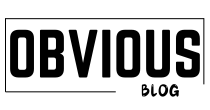The idea of universal health care, sometimes called single-payer healthcare or subsidized by the structure, wants to supply comprehensive medical insurance to everyone within a specific nation or zone. Although the proposal for national wellness has gained momentum lately, it is still a fierce argument worldwide. While detractors note issues with expense, inefficiency, and possible limitations on choice, supporters contend that it fosters equity and provides access to high-quality healthcare. The advantages and disadvantages of health care for all will be discussed in this article, along with any prospective perks and drawbacks of its application. So let’s start exploring Universal healthcare coverage.
What Is Universal Health Care?
A system of healthcare that offers complete medical services to all citizens of an entire nation or territory, despite their capacity to pay, is known as universal health care, additionally referred to as social medicine or single-payer healthcare. It is intended to guarantee that everyone gets access to essential healthcare services, irrespective of their financial situation, employment situation, or history of illness. Taxes are frequently used to support Universal healthcare coverage, which is then run by the federal government or a designated body. Although it is administered differently in different nations, its fundamental goal remains to offer everyone readily available, fair healthcare.
Everyone can get medical care when necessary without cost constraints in a Universal healthcare coverage system. This ensures nobody is stranded or forced to forgo essential treatments due to budgetary restrictions. Universal medical coverage seeks to advance equal access to high-quality healthcare services and enhance the population’s overall health by eliminating the monetary burden of healthcare bills.

Improved Fairness And Accessible
The possibility of giving all residents equal access to universal health care services is one of the main benefits of Universal medical coverage. National health system systems ensure that people can receive medical care without stressing about paying a lot by removing financial obstacles like costly insurance premiums or charges. By promoting proper care delivery regardless of economic status, this degree of availability lowers health inequities and enhances population health as a whole.
Reduced Expenses And Effectiveness
universal health care systems of free healthcare can aid in lowering the cost of medical inflation. Negotiating reduced rates for healthcare services, medications, and equipment is feasible by aggregating purchasing power under one organization, such as the government. In addition, National health system emphasizes early detection, preventive treatment, and routine check-up’s, which can lessen the need for costly urgent care and chronic illness management. Overall well-being can be better while lowering long-term expenses by strongly emphasizing primary healthcare and early intervention.
Easier Administrative Procedures
Administration processes have been reduced and made more straightforward in a universal health care system. There is no longer a demand for numerous private insurance firms and the related bureaucracy, which lessens the administrative burden on medical centres, physicians, and patients. This enables medical practitioners to focus more on caring for patients than on complicated insurance and billing methods. Standardizing medical information and facilitating greater care coordination amongst clinicians through centralized National health system management can also enhance patient outcomes.
Complete Protection
A broad spectrum of medical treatments, notably hospital stays, prescription medicines, behavioural treatments, and healing, is frequently covered in full under universal health care systems. Because of this comprehensive coverage, individuals can obtain the care they require without worrying about financial restrictions. Encouraging routine checkups and preventative actions encourages an anticipatory approach to health, leading to early disease identification and prompt therapies.
Benefits Of Entrepreneurship For The Economy
Achieving universal health care coverage can benefit the economy. People no longer depend on occupations to receive health insurance advantages by offering medicinal range to all people. As a result, there is a rise in creativity and entrepreneurship because individuals feel more comfortable taking chances and establishing their own companies. A healthier populace also results in higher output, lower absenteeism, and greater financial wellness.
Cons Of Universal Health Care
The Tax Load Is High
The possibility of a heavy tax load is one of the main issues with universal health care. A comprehensive healthcare system demands substantial financing, frequently provided by raising taxes on individuals and companies. The increasing tax burden, says critics, may negatively affect individuals, particularly those with higher salaries, creating a fall in their finances and slowing economic growth. It is crucial to consider the economic effects carefully and ensure the public is equally afflicted by taxation.
Fewer Options And Significant Waiting Periods
The potential for limiting freedom of choice and the potential for lengthier waiting periods for medical treatments are two more disadvantages of universal health care. Due to capacity issues, patients in various Universal medical coverage systems may delay receiving specific treatment or elective operations. Critics claim that this lack of options and significant wait times may make it more difficult for people to receive prompt, individualized care. These issues must be handled by making necessary investments in healthcare infrastructure, maximizing resource use, and implementing efficient treatment systems.
Admin Difficulty
Administration difficulties might be a problem for universal health care systems. These systems’ centralized design necessitates intensive collaboration and oversight to guarantee efficient operation. According to its detractors, massive government departments can be inefficient and slow to respond to individual demands. To address such problems, it is essential to set up efficient administrative procedures, invest substantially in information technology, and ensure that different parties involved successfully communicate with and coordinate with those around them.
Possibility Of Less Growth And The Quality
Concerns about the possible effects on the advancement of medicine and the standard of care are raised by opponents of universal health care. They contend that there could be less motivation for entrepreneurs to invest in developing and researching novel therapies and technologies under regimes where governmental oversight is predominant. Furthermore, they contend that single-payer systems may lessen competition among medical professionals, impacting standard services. To sustain high-quality healthcare services, finding a balance between providing access to care and encouraging creativity is critical.

Budgetary Limitations And Cost Overruns
Overruns in expenses and financial constraints might make implementing and maintaining a universal health care system challenging. Budget shortfalls may result if the initial costs estimated for installing such a system differ from the actual costs incurred. A Universal medical coverage system may face resource constraints due to rising healthcare expenses and developing medical advances, necessitating ongoing budget changes and prudent financial management. Establishing solid financial preparation procedures and looking into innovative fundraising alternatives is crucial for successfully addressing these difficulties.
Countries That Provide The Best Universal Health care
An aesthetically complete universal medical system should be chosen based on connectivity, customer service, output, and general well-being. Three nations have a reputation for having great Universal medical coverage systems: Canada, Germany, and Sweden.
Canada
The universal health care system that encompasses every citizen and permanent citizen of Canada has been repeatedly commended. The nation’s national healthcare program, Medicare and Medicaid, is supported by the public and managed at the provincial & territories level. In Canada, Universal medical coverage coverage guarantees all inhabitants access to essential medical services, such as doctor visits, hospital treatment, and necessary surgical operations.
The Universal medical coverage system in Canada has several advantages:
- It encourages accessibility by removing financial obstacles, enabling people to get critical health care without high fees.
- It focuses on preventative care, prompt treatment, and routine checkups because these aspects improve one’s health.
- The Canadian healthcare system gives equal chances to care for all individuals regardless of socioeconomic status.
But issues still exist inside the Canadian system. There have been issues regarding lengthy wait periods for certain elective surgeries, professionals’ medication, and diagnostic tests. Additionally, some places may experience capacity challenges due to rising healthcare demands and constrained resources. These issues underline the requirement for ongoing medical improvement and wise allocation of money.
Germany
The universal health care system in Germany, which mixes public and private components, is well known. Nearly eighty-five per cent of the populace is protected by the nation’s system, also known as the Government Medical Insurance (SHI) system. Individuals are required to have health insurance under this system, and they can select from various volunteer health insurers known as sickness funds.
The Universal medical coverage system in Germany has several advantages. Preventive care, admission to the hospital, prescription health care, and rehabilitative therapies are all covered. Patients can obtain specialist care without waiting long while enjoying a choice among healthcare providers. The system also places enormous value on high-quality care, emphasizing modern technology, medical research, and practical education initiatives.
Given the high expense of healthcare, people are required to pay premiums for insurance based on what they make. Differences in access and care quality can develop as in any structure with public and private components. It continues to be challenging to strike a balance between keeping rates low and making sure there are adequate funds for high-quality treatment.
Sweden
Because of its extensive and fair system, Sweden is frequently cited as an example of Universal medical coverage. Taxes publicly support the nation’s system and guarantees all citizens access to essential medical care. Sweden’s Universal healthcare coverage system places enormous value on early intervention, preventive maintenance, and encouraging healthy lives.
The Swedish system is exceptional in many ways. First, it focuses on primary healthcare and preventative measures, which improve the population’s general well-being. Second, it prioritizes accessibility by ensuring that each resident has equal access to care, irrespective of their financial situation or geography. The Swedish healthcare system also promotes patient autonomy and participation in healthcare choices, which supports a patient-centred approach.
Despite these advantages, the Swedish system needs help. Financial strains are brought on by the ageing population and rising healthcare expenses. Concerns have also been raised about geographical differences in access to medical facilities and wait periods for specialist care. The physical structure of healthcare must continue to be invested in, resources must be effectively allocated, and its efficiency must be periodically assessed.
It is significant to emphasize that each nation’s global healthcare system has distinct features, and what functions effectively in one setting might not be readily transferable to another. The “best” universal health care program will differ depending on each nation’s needs, cultural background, and financial resources: ongoing assessment and modification.
Hidden Facts About The Universal Health Care System
Although universal health care systems provide many advantages, there may be lesser-known facts and things to remember.
Compared to private healthcare systems, waiting periods for various treatments or specialist visits might be higher within specific Universal healthcare coverage systems, especially in nations with high demand and few resources. To guarantee access for everyone, this is frequently an alternative and a medical requirement is typically the basis for precedence.
Universal healthcare coverage systems frequently use cost-containment techniques to manage healthcare costs. Budget caps, bans on specific therapies or pharmaceuticals, and centralized resource allocation making decisions are a few examples of such policies. At the same time, cost-controlling efforts can occasionally lead to fewer options or delays in receiving specific therapies.
Since taxes often pay for Universal healthcare coverage, individuals and corporations pay into the system through tax obligations. While doing so distributes the cost of living among the populace, it may also increase tax rates for individuals and corporations. It is a constant concern to strike a balance between tax rates and the standard and availability of medical care.
Universal healthcare coverage regimes are criticized for stifling medical innovation. There might be fewer expenditures in research and development for novel therapies and technologies under government healthcare management as these systems frequently prioritize cost-effectiveness and standardized care. Within these systems, combining economy and inventiveness is a difficult task.
The availability of universal health care varies significantly between nations and even between parts of the same country. The size of the population, the available resources, and regional priorities can all have an impact on the system’s design and implementation. As a result, different universal healthcare systems may have different strengths and limitations depending on the situation.

The United States Has Universal Healthcare
There is no universal health care system in effect in the United States. Private health insurance, employer-sponsored plans, and government-funded schemes like Medicare and Medicaid form the foundation of the U.S. healthcare system.
However, there have been ongoing discussions over introducing Universal healthcare coverage in the U.S. According to proponents, a Universal healthcare coverage system would address the problems of access, cost, and fairness in health care services. They argue that universal health coverage might ensure that everyone has access to essential medical services by guaranteeing coverage for all Americans, regardless of their income or employment position.
Conclusion : Universal Health care
Divergent viewpoints and contentious debates mar the proposal of universal health care. There are several unquestionable benefits, such as increased accessibility, cost control, easier management, widespread protection, and monetary benefits, but there are also drawbacks. Worries about more unpaid taxes, less choice, and lengthy wait times underscore the challenges of setting up such a system.
Even though the advantages and disadvantages of Universal healthcare coverage are frequently discussed, ensuring that everybody has access to excellent healthcare remains the top objective. By balancing the advantages and disadvantages, societies can work for a system that simultaneously provides comprehensive healthcare but also upholds the principles of fairness, effectiveness, and a healthy personal lifestyle.
The aim of Universal healthcare coverage is that it will enhance overall health and decrease discrepancies in receiving care. Guaranteeing coverage to everyone, whatever their socioeconomic circumstances, aims to foster a more welcoming and diverse society. The ability to negotiate for lower medical service costs and a focus on preventative care can lead to cost savings over the long term and better health outcomes.
Universal health care must be implemented with careful planning, effective administration, and constant assessment to maximize its benefits and avoid drawbacks. Lessons acquired from countries using comparable systems can be very helpful in designing and upgrading flexible healthcare plans.
In addition, To ensure an equitable distribution of the burden, it is essential to carefully analyze the difficulties associated with funding as a system through higher taxes. Additionally, measures should be taken to reduce potential individual choice restrictions and deal with problems connected to specific treatment waiting times.
It’s essential to recognize that while Universal healthcare coverage systems strive to provide equitable healthcare access, challenges and trade-offs are inherent in any healthcare system. Understanding these hidden facts can contribute to a more comprehensive discussion.
Universal healthcare coverage is a significant step in ensuring everyone has an enjoyable and healthy existence. The system is constantly being improved and adjusted to meet the changing requirements of the populace while maintaining the fundamental principles of health care for everyone. Although it has pros and cons, it’s necessary to give everyone an equal amount of health because maintaining good health is the right of every citizen’s basic medical facilities; now the ball is in your court; which one do you prefer? For your health.




















